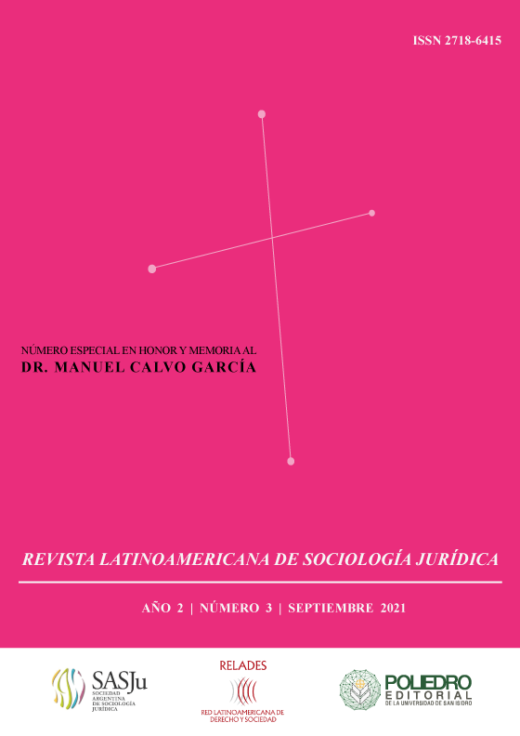El resguardo de la intimidad en las sociedades modernas. Una mirada desde la biopolítica
Palabras clave:
intimidad, gobierno, ley, biopolíticaResumen
El actual momento de pandemia ha llamado la atención a nivel mundial acerca del control que ejercen los Estados sobre las poblaciones que gobiernan. Haciéndose visibles “espacios” sociales que frente al actual escenario sanitario se exige ser vigilados y regulados mediante la acción tanto coercitiva como simbólica desplegada por los Estados sobre los territorios.
Se instala así un debate en torno al carácter que asume hoy el ejercicio de la política, así como el rol del Estado en el ejercicio de la gobernabilidad; encontrándose por otro lado el individuo y lo social, que termina siendo objeto de dicha regulación e intervención institucional.
Así, todo poder termina generando en su desarrollo un contrapoder o resistencia, que en la actualidad asume la forma de la multitud: plural, diversa y espontánea; llevando a cabo una reconstrucción permanente de la sociedad civil frente al control y vigilancia desplegado por la institucionalidad estatal a través de estrategias basadas en el micropoder, donde la ley se presenta como una de sus principales herramientas tanto dentro de las fronteras nacionales como fuera de éstas.
Descargas
Referencias
Adorno, Theodor. (2020). Rasgos del nuevo radicalismo de derecha, Barcelona, Taurus.
Agamben, Giorgio. (2003). Homo Sacer. El poder soberano y la nuda vida, Valencia, Pre- Textos.
Arendt, Hannah. (2008). La promesa de la política, Barcelona, Paidós. Arendt, Hannah. (2009). La condición humana, Buenos Aires, Paidós. Benjamin, Walter. (1982). Para una crítica de la violencia, México, Premiá.
Catelli, Nora. (2007). En la era de la intimidad, Buenos Aires, Beatriz Viterbo Editora.
Deleuze, Gilles. (2005). Derrames. Entre el capitalismo y la esquizofrenia, Buenos Aires, Cactus.
Eagleton, Terry. (2006). La estética como ideología, Madrid, Trotta.
Foucault, Michel. (2006). Seguridad, territorio, población, Buenos Aires, Fondo de Cultura Económica.
Foucault, Michel. (2009). La hermenéutica del sujeto, Buenos Aires, Fondo de Cultura Económica.
Habermas, Jürgen (2008). Más allá del estado nacional, Madrid, Trotta. Han, Byung-Chul. (2012). La sociedad del cansancio, Barcelona, Herder.
Laclau, Ernesto y Chantal Mouffe. (2015). Hegemonía y estrategia eocialista. Hacia una radicalización de la democracia, Madrid, Siglo XXI.
Negri, Antonio y Michael Hardt. (2000). Imperio, Massachusetts, Ediciones Harvard University Press.
Pardo Torío, José Luis. (1998). “Políticas de la intimidad. Ensayo sobre la falta de excepciones”, Logos. Anales Del Seminario De Metafísica, No. 32, pp. 145-196.
Pardo Torío, José Luis. (2004). La intimidad, Valencia, Pre-Textos.
Sibilia, Paula. (2008). La intimidad como espectáculo, Fernández Labriola, Rodrigo, (trad.), Buenos Aires, Fondo de Cultura Económica (Obra original publicada en 2008).
Virno, Paolo. (2003). Gramática de la multitud, Buenos Aires, Ediciones Colihue S.R.L.
Zelizer, Viviana. (2009). La negociación de la intimidad, Buenos Aires, Fondo De Cultura Económica.
Zizek, Slavoj y Frederic Jameson. (1998). Estudios culturales. Reflexiones sobre el multiculturalismo, Buenos Aires, Paidós.


